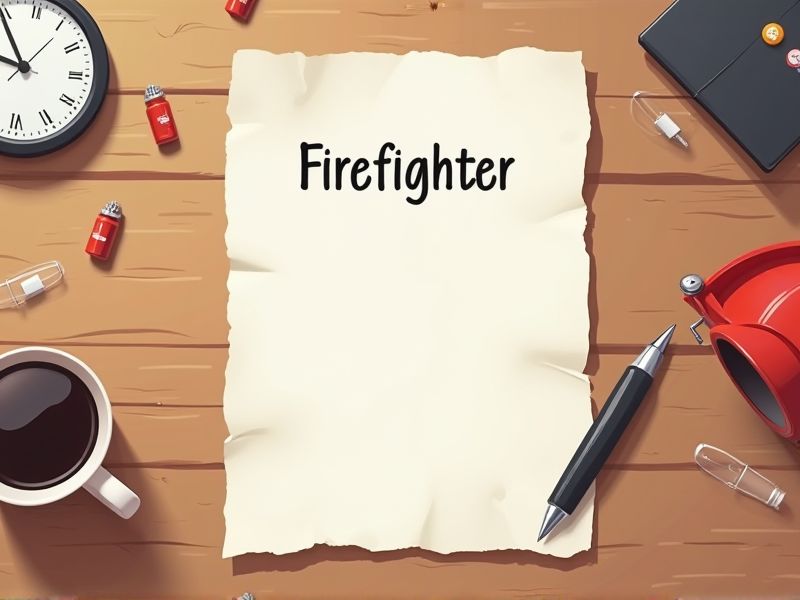
Firefighters face diverse and unpredictable scenarios, requiring specialized knowledge and skills to ensure both personal and public safety. Certifications are essential as they verify a firefighter's competence in critical areas, like hazardous materials handling and advanced medical response. They also keep professionals updated with the latest safety protocols and technological advancements in firefighting. Here are some crucial certifications that you may need for a career in firefighting.
Firefighter I Certification
Firefighter I Certification provides foundational knowledge and skills necessary for ensuring safety and effectiveness in fire situations. Without this certification, firefighters may lack essential training in areas such as fire behavior, equipment handling, and emergency medical response. Departments often require the certification to maintain a standard of competence and professionalism across staff. It also serves to instill public trust by demonstrating that firefighters possess requisite qualifications.
Firefighter II Certification
The Firefighter II Certification expands on the fundamental skills learned in Firefighter I, preparing individuals for more complex rescue operations. Enhanced training in fireground operations leads to increased safety and competence during emergency responses. The certification ensures firefighters can effectively use advanced equipment and tactics, reducing the likelihood of on-the-job accidents. Many fire departments require this certification as a standard for employment or promotion, aligning with industry-best practices to improve departmental performance.
Emergency Medical Technician (EMT) Certification
Firefighters frequently encounter medical emergencies at the scene, requiring them to provide immediate care; EMT certification equips them with the necessary life-saving skills. Many fire departments mandate EMT certification because it ensures firefighters can efficiently manage situations involving injury or illness. The training enhances a firefighter's ability to assess and stabilize victims, potentially improving survival rates in critical incidents. With EMT certification, firefighters can better collaborate with paramedics and medical personnel, ensuring a cohesive approach to emergency response.
CPR & First Aid Certification
Firefighters often encounter emergency situations where immediate intervention can prevent fatalities, hence CPR and First Aid certification equips them to offer life-saving assistance. Fires and accidents frequently result in injuries or medical emergencies before medical teams arrive, thus certified firefighters can bridge this crucial time gap. In hazardous environments, quick and informed actions reduce the risk of complications and improve overall survival rates. Comprehensive knowledge gained from certification ensures that firefighters are prepared for diverse scenarios, enhancing their effectiveness in rescue operations.
Hazardous Materials Awareness Certification
Firefighters often encounter hazardous materials during emergencies, and awareness certification equips them with the necessary knowledge to identify and handle these materials safely. This certification enhances a firefighter's ability to assess risks and implement appropriate protective measures, reducing potential harm. Effective handling of hazardous materials minimizes the risk of chemical exposure to both the firefighters and the public. Improved preparedness and response capability in hazardous situations leads to increased overall public safety.
Incident Command System (ICS) Certification
ICS certification enhances organizational efficiency by providing a standardized management structure during emergencies. Firefighters require this to ensure cohesive coordination and clear communication with other emergency responders. Certification also augments decision-making skills, fostering effective resource allocation in high-pressure scenarios. Widespread ICS understanding among firefighters minimizes operational errors and optimizes safety protocols.
Technical Rescue Certification
Technical Rescue Certification enhances a firefighter's ability to safely and effectively handle complex rescue situations, such as confined space or high-angle rescues. This specialized training reduces the risk of injury to both rescuers and victims by equipping firefighters with advanced skills and knowledge. Certification ensures standardization in rescue techniques, fostering seamless coordination during emergency operations. Communities experience increased safety and trust in emergency response services when firefighters are certified in technical rescues.
Fire Apparatus Operator Certification
Fire Apparatus Operator Certification is essential for firefighters because it ensures they have the skills to operate emergency vehicles safely under high-stress conditions. This certification reduces the likelihood of accidents during emergency responses, protecting both the crew and the public. It also enhances the firefighter's ability to manage complex equipment efficiently, which is critical in life-threatening situations. Certified operators contribute to a more effective firefighting team, improving response outcomes and saving lives.
Fire Instructor Certification
Achieving Fire Instructor Certification equips firefighters with the critical skills required to train others effectively. Certified instructors ensure that training programs adhere to industry standards, enhancing overall fire department readiness. Firefighter safety increases as certified instructors impart up-to-date knowledge on techniques and equipment. This certification also supports career advancement, offering structured pathways for professional development within fire service organizations.
Tactical Emergency Casualty Care (TECC) Certification
Tactical Emergency Casualty Care (TECC) Certification equips firefighters with the skills to provide immediate life-saving medical care during high-threat incidents. Firefighters often face scenarios where traditional medical care is delayed, and TECC training ensures they can stabilize victims. The certification emphasizes techniques tailored for environments like active shooter situations, explosions, or natural disasters. By understanding TECC protocols, firefighters can effectively collaborate with law enforcement and EMS, enhancing overall emergency response efficiency.
Summary
By achieving certifications, you enhance firefighting skills, increasing both competence and confidence. Certified firefighters typically see an improved response efficiency and heightened awareness of safety protocols. Communities benefit from a decreased risk of fire-related incidents and better emergency outcomes. The department gains credibility and may access advanced resources and funding.
